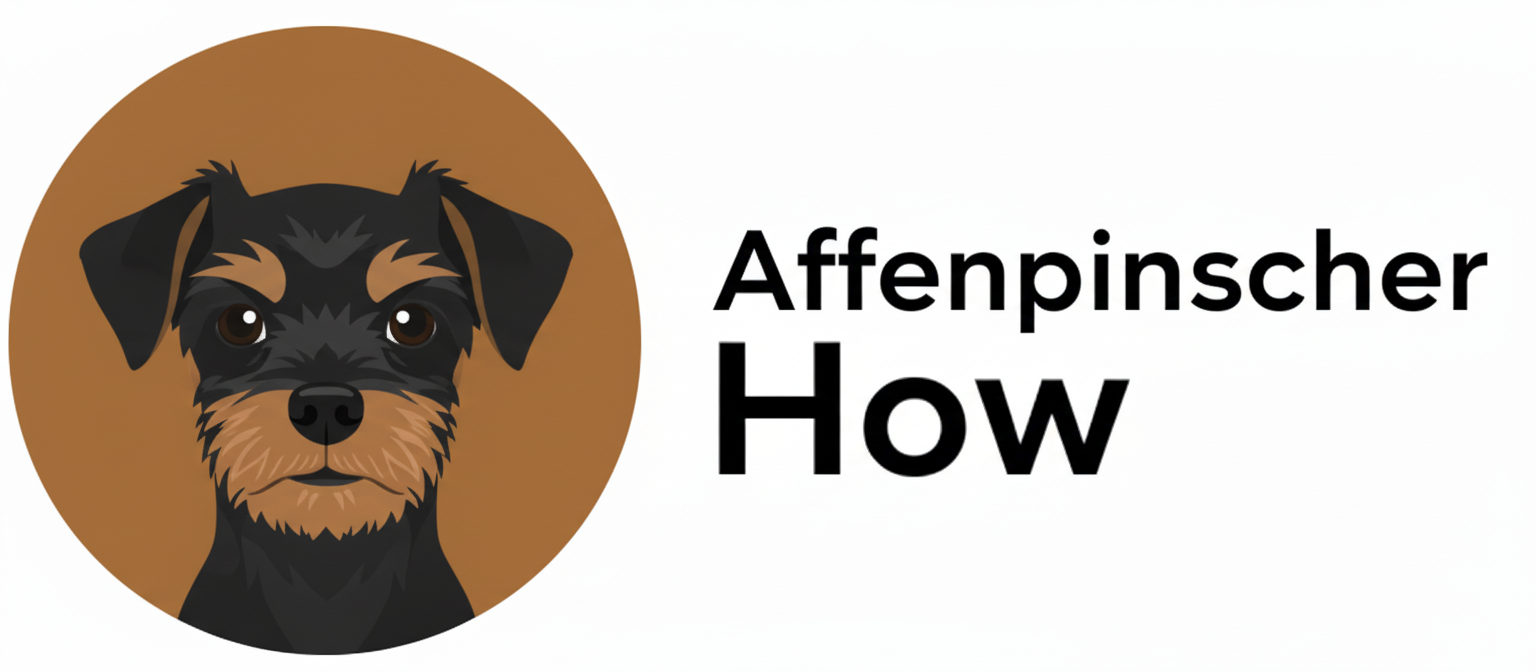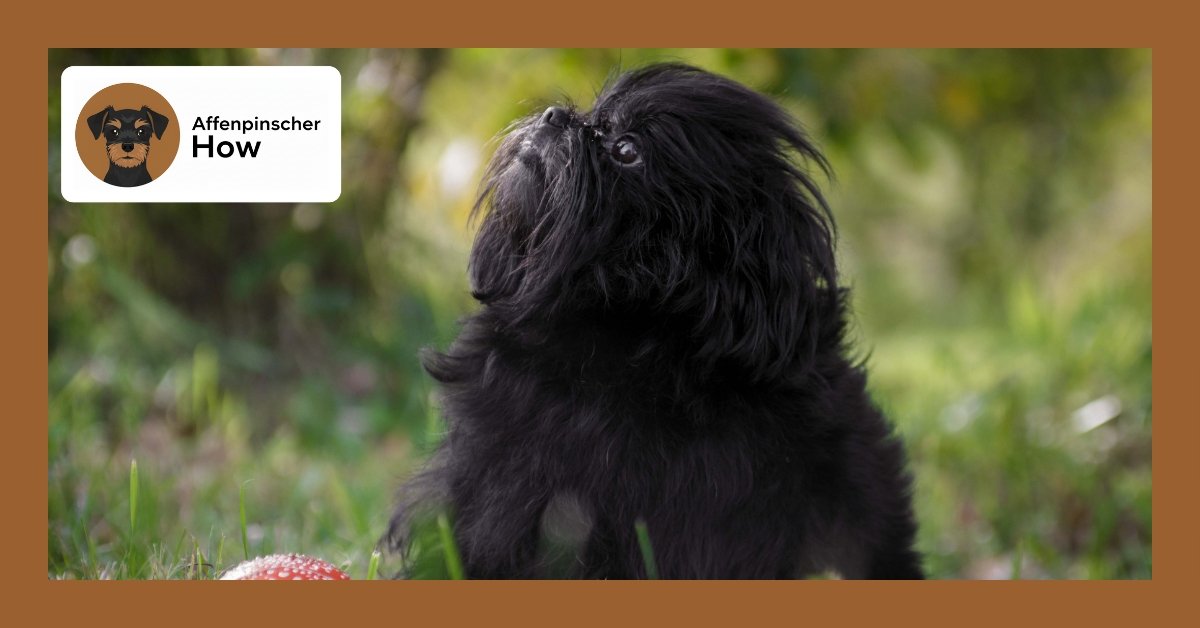Did you know that breeding an Affenpinscher too early can permanently damage both the mother’s health and the puppies’ development? This tiny “monkey terrier” may look ready for breeding, but timing everything correctly requires far more than watching for heat cycles.
When to breed an Affenpinscher depends on multiple factors: the female should be at least 2 years old with completed health certifications, have skipped her first heat cycle, and meet strict breed standards for conformation and temperament. Responsible breeding also requires adequate recovery time between litters and comprehensive genetic screening.
The decision to breed an Affenpinscher carries significant responsibility. With their small gene pool and specific health concerns, these dogs require breeders who prioritize genetic health over profit. According to the Affenpinscher Club of America, only dogs of excellent quality should be considered for breeding programs.
Essential Health Requirements Before Breeding
Health testing forms the foundation of responsible Affenpinscher breeding. These requirements exist because many genetic conditions remain hidden until breeding age or later.
Required Health Certifications
Before considering breeding, your Affenpinscher must complete specific health evaluations. The following certifications are non-negotiable for ethical breeding:
- OFA Hip Certification: Required after age 2 years to screen for hip dysplasia
- Patella Evaluation: Veterinary certification for luxating patella prevention
- CERF Eye Examination: Annual eye exams to detect hereditary eye conditions
- Legg-Calvé-Perthes Screening: OFA certification after age 1 year
- Genetic Testing: DNA panels for breed-specific inherited disorders
These tests cost between $500-$1,200 total but prevent devastating health issues in future generations. Results must show clear or acceptable ratings before breeding proceeds.
Pedigree Analysis and Genetic Counseling
Examining your Affenpinscher’s pedigree reveals potential genetic risks. Focus on the health history of parents, grandparents, and siblings from previous litters.
Many inherited disorders follow recessive patterns, meaning healthy parents can still produce affected puppies. Professional genetic counseling helps identify these hidden risks and guides breeding decisions.
Optimal Breeding Age and Timing
Timing affects both immediate breeding success and long-term health outcomes. Breeding too early stunts development, while waiting too long increases pregnancy complications.
Why Skip the First Heat Cycle
Most Affenpinschers experience their first heat between 6-12 months, but breeding during this cycle causes serious problems. Young females lack physical and emotional maturity for pregnancy demands.
The first heat cycle often produces irregular ovulation patterns. Breeding during this time increases miscarriage rates and reduces litter sizes significantly.
Ideal Breeding Age Timeline
Follow this timeline for optimal breeding success:
- 18-24 months: Complete all health certifications and genetic testing
- Second heat cycle: Earliest recommended breeding age (usually 12-18 months)
- 2-6 years: Prime breeding years with highest success rates
- After 7 years: Increased pregnancy risks; veterinary consultation required
Most experienced breeders prefer waiting until the third heat cycle, allowing full physical maturity before breeding begins.
Breed Standards and Selection Criteria
Not every healthy Affenpinscher qualifies for breeding programs. Understanding proper Affenpinscher size requirements and strict selection criteria ensure breed improvement rather than simple reproduction.
Physical Conformation Requirements
| Trait | Breeding Standard | Disqualifying Faults |
|---|---|---|
| Bite | Slight undershot preferred | Overshot or wry mouth |
| Size | 9-11.5 inches, 7-10 pounds | Under 9 or over 11.5 inches |
| Coat | Dense, rough, monkey-like | Silky, soft, or sparse coat |
| Expression | Alert, monkey-like | Lacking breed character |
Temperament Evaluation
Temperament testing reveals personality traits that pass to offspring. Ideal breeding candidates display confidence, stability, and typical Affenpinscher boldness without aggression.
Avoid breeding dogs with fear-based behaviors, excessive shyness, or unprovoked aggression. These traits often intensify in subsequent generations. If you notice concerning behaviors like unusual growling patterns, address these issues before considering breeding.
How to Plan Your Breeding Program
Successful Affenpinscher breeding requires systematic planning and expert guidance. Follow these steps for ethical breeding practices.
Step 1: Evaluate Your Female
Honestly assess whether your Affenpinscher meets breeding standards. Consider conformation, health, temperament, and pedigree quality. Seek objective evaluations from breed experts and judges.
Step 2: Select Compatible Males
Choose stud dogs that complement your female’s strengths and offset her weaknesses. Review health clearances, pedigrees, and previous offspring quality.
Avoid line breeding unless you understand genetic principles and work with experienced mentors. Outcrossing often produces healthier, more robust puppies.
Step 3: Time the Breeding
Most Affenpinschers ovulate between days 10-14 of their heat cycle. Schedule veterinary progesterone testing to pinpoint optimal breeding days.
Plan 2-3 breedings every other day during the fertile window. This timing maximizes conception rates while reducing stress on both parents.
Step 4: Prepare for Pregnancy and Whelping
Affenpinscher pregnancies last approximately 63 days. Schedule regular veterinary checkups and prepare whelping supplies early.
Small breed pregnancies carry higher risks for complications. Establish relationships with emergency veterinary services before breeding begins.
Ethical Considerations and Recovery Time
Responsible breeding prioritizes animal welfare over profit potential. This philosophy guides timing decisions and breeding frequency limits.
Recovery Between Litters
Never breed Affenpinschers on consecutive heat cycles. Pregnancy and nursing deplete calcium, energy reserves, and overall body condition.
Allow minimum 12-18 months between litters for complete physical recovery. Many experienced breeders prefer 2-year intervals for optimal health maintenance.
Retirement Planning
Plan retirement ages before breeding begins. Most Affenpinscher females should retire by age 6-7 years, depending on individual health and previous pregnancy complications.
Consider lifetime breeding limits of 3-4 litters maximum. Quality always outweighs quantity in ethical breeding programs.
Common Mistakes and Red Flags
Avoid these dangerous misconceptions that harm Affenpinscher welfare and breed integrity.
Breeding Myths to Ignore
- “Every dog should have one litter”: False – only exceptional dogs merit breeding
- “Back-to-back breeding is natural”: Dangerous practice causing long-term health damage
- “Puppy mill dogs make good pets”: Poor breeding creates behavioral and health problems
Research breeders carefully and avoid anyone promoting these harmful practices. Ethical breeders prioritize health testing and proper recovery time.
Conclusion
Determining when to breed an Affenpinscher requires balancing multiple factors: optimal age timing, comprehensive health testing, breed standard compliance, and ethical responsibilities. The decision impacts not just individual dogs but the entire breed’s future.
Wait until your female reaches at least 2 years old with completed health certifications before considering breeding. Skip the first heat cycle and ensure adequate recovery time between litters.
Remember that breeding carries significant responsibilities and costs. Only proceed if you’re committed to improving the breed through careful selection and ethical practices. If you’re considering expanding your Affenpinscher family through other means, you might explore rescue organizations as an alternative to breeding.
The Affenpinscher’s future depends on breeders who prioritize health, temperament, and welfare over quick profits or casual reproduction.
Frequently Asked Questions
At what age can you first breed an Affenpinscher?
Affenpinschers should not be bred before 18-24 months old, after completing all health certifications. Most experts recommend waiting until the second or third heat cycle for optimal physical and emotional maturity. Breeding too early can cause developmental problems and pregnancy complications.
Should I breed my Affenpinscher on her first heat?
No, never breed an Affenpinscher during her first heat cycle. Young females lack physical maturity for pregnancy demands, and first heats often produce irregular ovulation patterns. This increases miscarriage rates and reduces overall breeding success significantly.
How often can you safely breed an Affenpinscher?
Affenpinschers should never be bred on consecutive heat cycles. Allow minimum 12-18 months between litters for complete physical recovery from pregnancy and nursing. Many experienced breeders prefer 2-year intervals and limit lifetime breeding to 3-4 litters maximum.
What health tests are required before breeding?
Essential health certifications include OFA hip certification (after age 2), patella evaluation, annual CERF eye exams, Legg-Calvé-Perthes screening (after age 1), and genetic DNA testing for inherited disorders. All results must show clear or acceptable ratings before breeding.
What disqualifies an Affenpinscher from breeding?
Disqualifying factors include overshot or wry bite, size outside 9-11.5 inches, poor temperament, failed health certifications, and lack of breed character. Dogs with serious genetic disorders, structural faults, or behavioral problems should never be bred regardless of other qualities.
When should an Affenpinscher retire from breeding?
Most Affenpinscher females should retire by age 6-7 years, depending on individual health and previous pregnancy complications. Consider lifetime limits of 3-4 litters maximum and prioritize the female’s long-term health over continued breeding potential.
How do I know if my Affenpinscher is breeding quality?
Seek objective evaluations from breed experts, judges, and experienced breeders. Your dog should excel in conformation, temperament, health, and pedigree quality. Only exceptional dogs that improve the breed should be considered for breeding programs, not every healthy pet.

